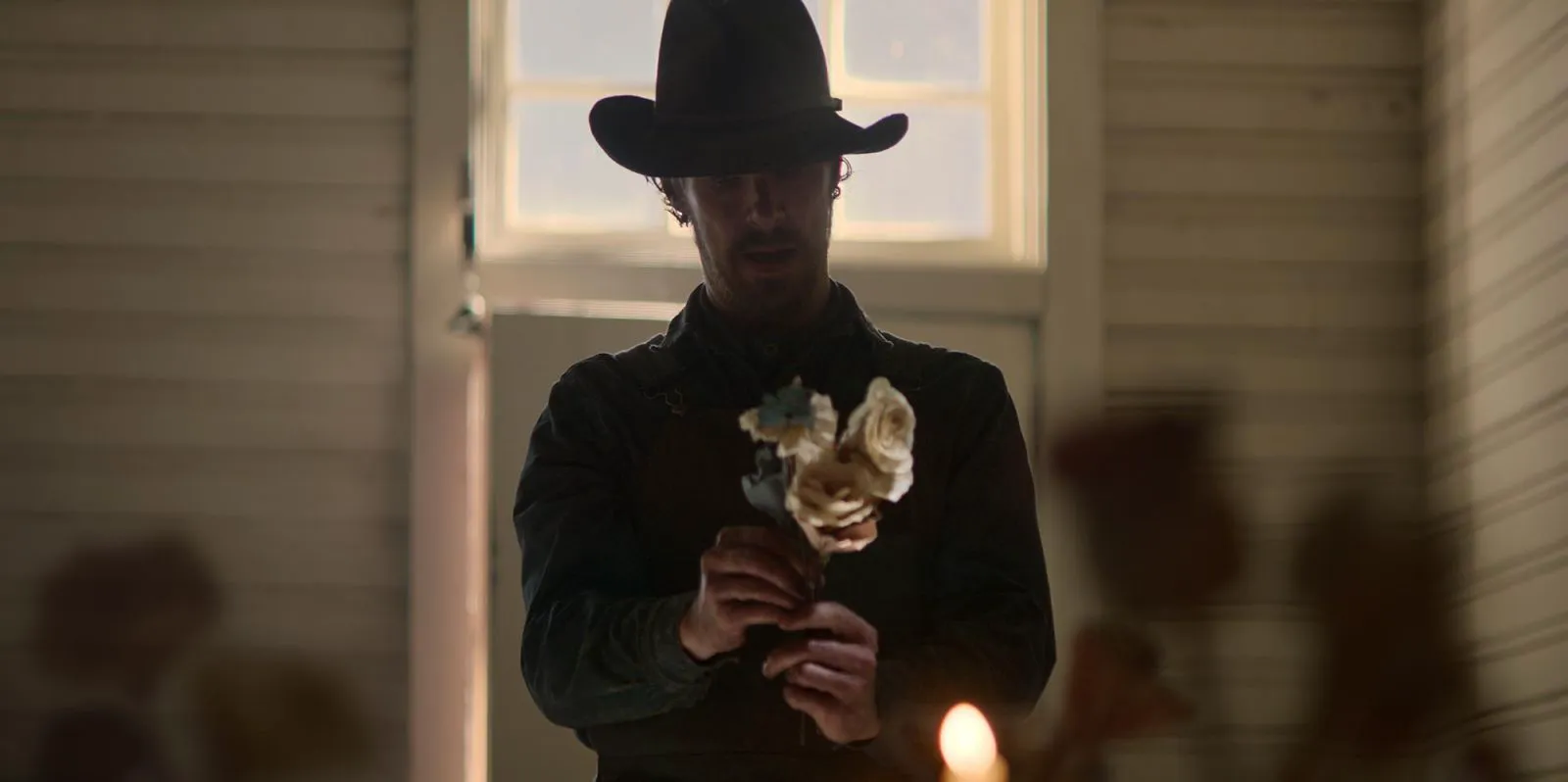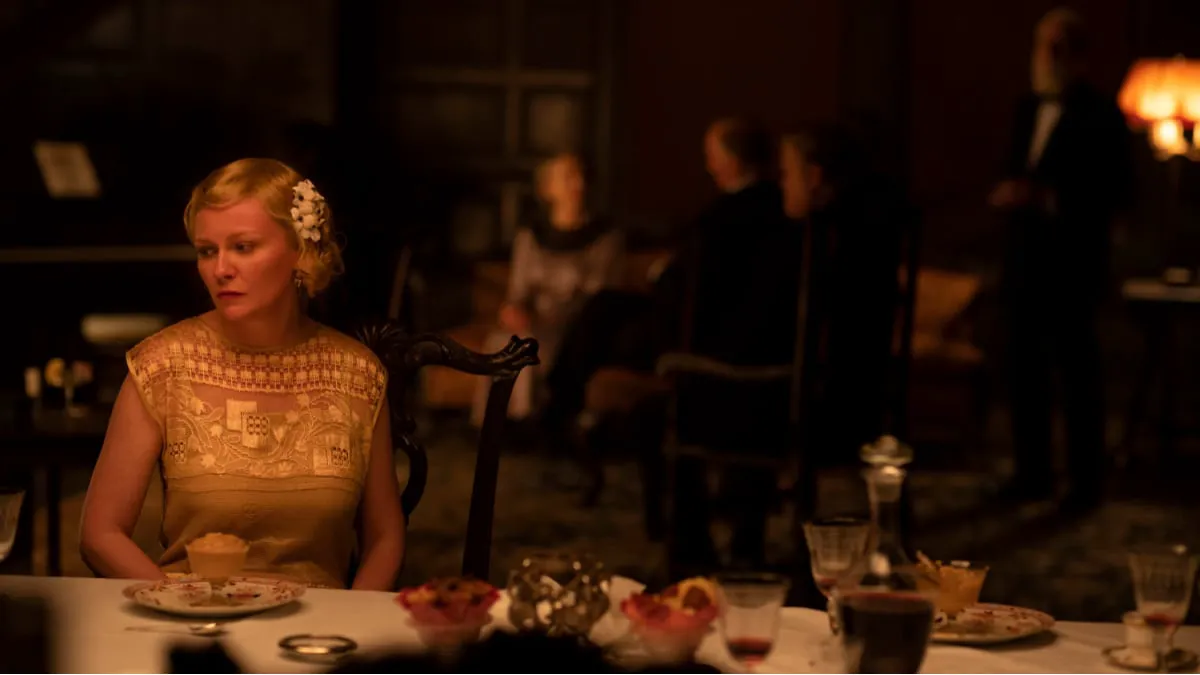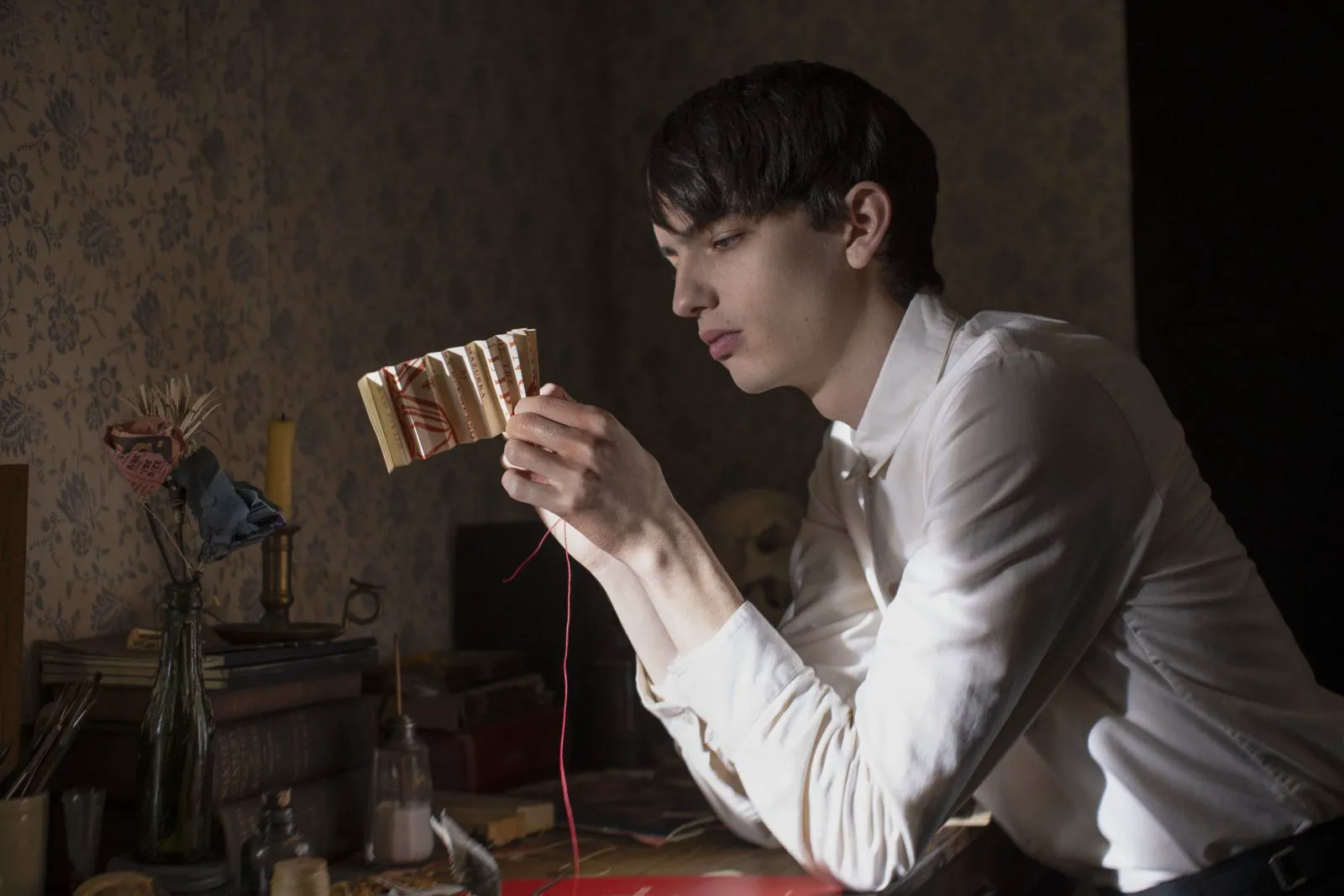In the year 1925, in the vast landscapes of Montana, we find the Burbank brothers, Phil (played by Benedict Cumberbatch) and George (played by Jesse Plemons), co-owners of a modest ranch. For four decades, they’ve lived an inseparable life. However, their bond is tested when George decides to marry Rose (Kirsten Dunst), a local widow, sparking a vengeful reaction from the solitary Phil.
Phil Burbank is a man who despises weakness. More than two decades after the loss of his close friend and mentor, Bronco Henry, a relationship that held unspoken depths, Phil has retreated into a reclusive existence. He’s far from a pious monk, rarely bathing and with no intention of rejoining civilization. Surrounded by loyal ranch hands and a herd of cattle, Phil is both harsh and principled, yet also unprincipled. His past holds a surprising chapter: studies in Latin and Greek at Yale University. His career could have soared, but instead, Phil chose to settle far from the city limits. Unlike his gentle and yielding brother George, Phil proudly wears his solitude, masculinity, the accompanying stench, and the hides he skins, like leather chaps that cleverly conceal his insecurities. Phil harbors secrets he’s unwilling to admit, either to himself or to those around him.
The Complex Character of Phil Burbank

Benedict Cumberbatch as Phil Burbank in “The Power of the Dog”
Jane Campion’s “The Power of the Dog,” based on Thomas Savage’s 1967 novel (a forgotten classic of queer literature), might be mistaken for a Western, perhaps even a “neo-” Western, easily interpreted in a straightforward or strictly binary way. Yet, the film lacks gunfights, gangs, and nobility. Its conflicts are emotional, creating a destabilizing pressure. Campion, an Oscar winner for “The Piano” (1993), another exploration of isolation and literal muteness in foreign lands, approaches familiar American pastoral settings and their male inhabitants with empathy and a touch of mysticism.
The title references a biblical psalm: “Deliver my soul from the sword, my precious life from the power of the dog.” Campion ends her decade-long hiatus with a powerful dissection of so-called “toxic masculinity,” the blind adherence to the “right kind of man,” and his supposed ignorance of his own mental state. Phil begins to crack with the arrival of Rose and her son Peter (Kodi Smit-McPhee), a schoolboy and aspiring student visiting his new family for the summer. Peter’s status as an outsider resonates with Phil, though he initially refuses to acknowledge it.
The Arrival of Rose and Peter
Peter aspires to become a doctor: he dissects and calmly breaks the necks of rabbits, cuts into dying cows, and enjoys making paper flowers. Phil calls him a “sissy,” raised by a nervous mother. But Peter, like Phil, knows the isolation of being an outcast, sometimes voluntary, sometimes forced. Suddenly, the teenager begins to feel on equal footing with Phil, leading to an undercurrent of psychosexual tension throughout the third act. Rose is determined to prevent a friendship between her son and Phil. Having lost her husband to suicide and remarried to George, she gradually turns to alcohol to numb her fear, worsening her condition.

Kirsten Dunst as Rose in “The Power of the Dog”
A Masterful Blend of Influences
Over two hours, Campion, who won the Silver Lion for Best Director at the Venice Film Festival, meticulously dissects the true nature of the protagonist, drawing parallels to Terrence Malick’s “Days of Heaven,” with its two lost lovers driven to crime; the Coen brothers’ “No Country for Old Men,” with the inevitability of a devilish fate; and Claire Denis’ “Beau Travail,” about a legion of soldiers cultivating violence and forever broken lives. Complementing Campion’s references are Ari Wegner’s (“True History of the Kelly Gang”) piercing cinematography, capturing the somber beauty of Montana (the film was shot in Campion’s native New Zealand), and another outstanding soundtrack by Radiohead guitarist Jonny Greenwood (“There Will Be Blood”).
Cumberbatch delivers a thunderous and arguably the most precise performance of his career. His Phil is carved from the pain of past mistakes and internalized homophobia. He only acknowledges the latter when he cries at night or retreats to a hidden grove, where he keeps carefully concealed magazines of nude athletes and a small lake where he can wash away all the shame and stench. The actor, who needs no introduction for the past decade, with a huge fan base and a hefty check from Marvel, consciously takes the biggest risk in his filmography and fully delivers. By invading his life, Phil Burbank inevitably initiates a tragic transformation, barely holding onto the edge of secrecy and revelation (the creaking saddle of that very mentor, the rope woven with particular tenderness), quite logically cutting off what he barely had time to taste – personal freedom. Usually, such transformations earn awards, but due to the dominance of endless biopics and experimental makeup, there is little to hope for.

Kodi Smit-McPhee as Peter in “The Power of the Dog”
Stellar Performances
Surprisingly, Australian actor Smit-McPhee matches Cumberbatch’s performance. His inquisitive, large eyes, his demonic involvement in the relationship with Phil, his scientific interest in him, and his determination to destroy him, weave a strong, sticky web and bring the matter to an end, while simultaneously instilling terror. Dunst also delivers a confident and equally tragic supporting performance, finally returning from oblivion to work with serious auteurs. Having worked as a cook, her character Rose finds herself in a completely different environment that has consumed her, unable to switch. Jesse Plemons, Dunst’s on-screen and real-life husband, the least noticeable member of the cast, manages to fill the space with care and quiet opposition to the tyrant Phil, with whom he shared a bed and life for 40 years.
“The Power of the Dog” presents a relevant analysis of the image of a man passed down from generation to generation, constrained by patriarchal attitudes and the latency of deeply buried feelings. Campion once again confirms and justifies the presence of the “female gaze” in cinema, its universality, its penetration into areas that some directors are not fully aware of. The only problem, or rather wish, remains the standard two-hour running time, which is not always enough to fully feel the breakdown and extreme urgency of this film. But even within these disciplined limits, “The Power of the Dog” manages to both condemn, comfort, and even slightly encourage – through perverse and unobvious methods from the opposite – its characters and viewers.